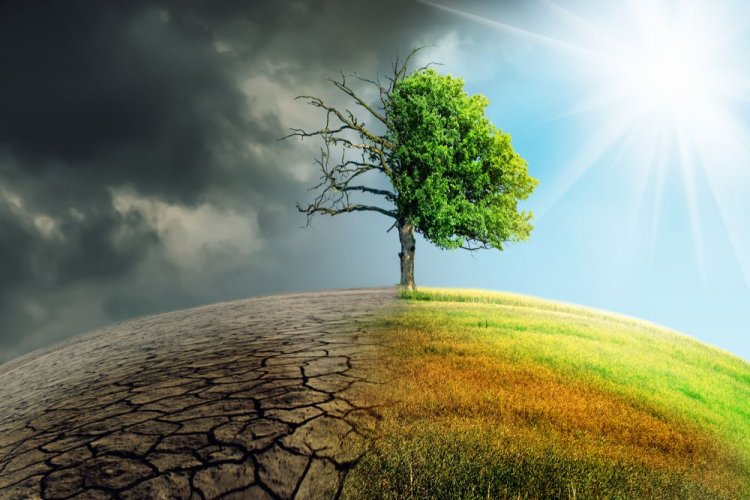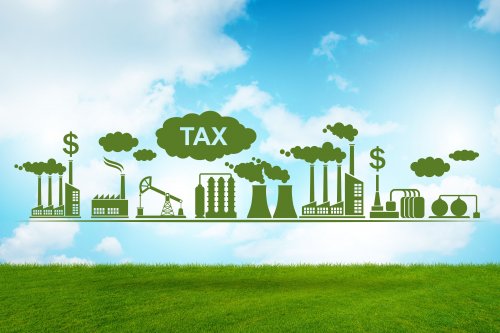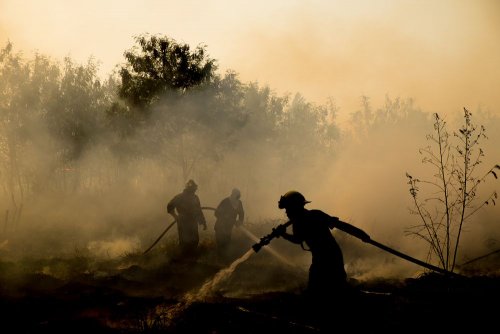The UN's Intergovernmental Panel on Climate Change(IPCC) has confirmed that climate change is making heatwaves hotter and more frequent in most land regions of the world.
A warmer baseline means higher temperatures can be reached during extreme heat, it is said by The World Economic Forum.
Emissions of greenhouse gases from human activity have led to a warming of the planet by approximately 1.2 degrees.
"Every heatwave that we are experiencing today has been made hotter and more frequent because of climate change," said Friederike Otto, a climate scientist at Imperial College London and head of the World Weather Attribution research collaboration.
However, heat waves are affected by other conditions.
Thus, in Europe, atmospheric circulation is an important factor, because heat waves have increased three to four times faster than in other northern middle latitudes. This is due to changes in the jet stream – a fast flow of air from west to east in the northern hemisphere.
To find out exactly how much climate change has affected a particular heat wave, scientists conduct attribution studies. Since 2004, more than 400 such studies have been conducted on extreme weather events, including heatwaves, floods and droughts, looking at the role of climate change in each.
This involves modeling the current climate and comparing it with a climate simulation without anthropogenic greenhouse gas emissions.
Scientists at World Weather Attribution found that record heat in Western Europe in June 2019 was 100 times more likely now in France and the Netherlands than if humans had not changed the climate.
The average global temperature is about 1.2C higher than in pre-industrial times. This is already causing extreme heat.
"On average on land, heat extremes that would have happened once every 10 years without human influence on the climate are now three times more frequent," said climate scientist Sonia Seneviratne from ETH Zurich.
Temperatures will only stop rising if humans stop adding greenhouse gases to the atmosphere. Until then, heat waves will intensify. If climate change is not dealt with, extreme heat will become even more dangerous.
Under the global Paris Agreement of 2015, countries agreed to cut emissions fast enough to limit global warming to 2°C and aim for 1.5°C to avoid its most dangerous effects.
A heat wave that occurred once per decade in the pre-industrial era would occur 4.1 times per decade at 1.5°C warming and 5.6 times at 2°C warming.
Seneviratne noted that an excess of 1.5°C warming means that most years will be affected by extreme heat in the future.
Climate change is exacerbating hot and dry conditions that help fires spread faster, burn longer and burn more intensely.
In the Mediterranean, this contributed to the fire season starting earlier and burning more land. More than half a million hectares burned in the EU in 2021, making it the second-worst forest fire season in the bloc after 2017.
Hot weather also saps moisture from vegetation, turning it into dry fuel that helps spread fires.
Countries like Portugal and Greece are more prone to summer fires and have the infrastructure to try to deal with them, although both received emergency EU aid in summer 2022. However, hotter temperatures also push wildfires into regions that are unaccustomed to them and therefore less prepared to fight them.
Forest management and ignition sources are also important factors in fires. After all, more than 90% of fires are caused by human activity, including arson, barbecues, power lines or glass blockage.
Some actions can help limit severe fires, such as setting controlled fires that mimic low-intensity fires in natural ecosystem cycles, or creating gaps in forests to stop fires from spreading quickly over large areas.
But scientists agree that without drastic cuts in the greenhouse gas emissions that cause climate change, heat waves, wildfires, floods and droughts will get much worse.
"When we look back on the current fire season in one or two decades' time, it will probably seem mild by comparison," said Victor Resco de Dios, professor of forest engineering at Spain's Lleida University.
Earlier, EcoPolitic wrote, that research by the British Meteorological Office showed that greenhouse gas emissions from human activity directly are responsible for long-term dry conditions in the Mediterranean basin and increased rainfall in the rest of Europe.
As EcoPolitic previously reported, Pope Francis called on all believers and public leaders to care for the environment and fight against climate change.





